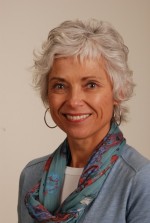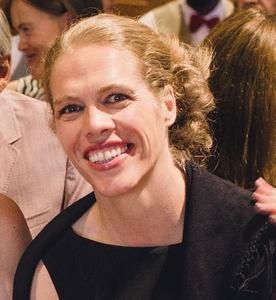In 2004, when I was executive director of Planned Parenthood Alberta, I gave an introductory presentation on fertility awareness for women looking for alternatives to hormonal birth control. One young woman who’d been on Depo-Provera for five years had been recently diagnosed with severe osteopenia. After quitting the drug, she said she realized in retrospect that for those five years she had felt like she was living “under the surface” of her life.
Another told the story of how she had struggled with serious mood issues while on the birth control pill. She would stop taking it, rely on condoms and emergency contraception for a while, then visit her doctor who would urge her to go back on the pill. After a few of cycles of on-off-on, she quit the pill once and for all. She said she decided to “just stop talking to this doctor about birth control.”
I’ve heard scores of stories like these over the past 30 years, and read hundreds more from women commenting on blog posts and online articles. For decades women have stopped using hormonal contraception to improve their health and well-being. Advocating on their behalf has been a major focus of my work as a pro-choice activist.
The Birth Control Dichotomy
I’ve been a pro-choice sexual and reproductive health advocate since I was 15 years old. Today I turn 60, celebrating a 45-year commitment to pro-choice values. But I mark the occasion with frustration and disappointment because the sexual and reproductive health (SRH) community to which I belong has failed to adequately–unreservedly–serve women who won’t, don’t or can’t use hormonal birth control.
I believe that what is keeping them from doing so is failure to acknowledge and embrace the dichotomy that exists within the pro-choice contraceptive framework.
A dichotomy is division of a whole into two mutually exclusive, opposed, or contradictory groups. If pro-choice contraception is the whole, two mutually exclusive groups are:
- women who use and like, or want to use hormonal birth control (HBC)
- women who use and like, or want to use non-hormonal birth control (NHBC).
Both groups deserve equal attention, support and services to use the birth control methods they decide are right for them. But this is not happening.
Just as we who hold pro-choice values don’t judge or hassle women for the reasons they choose to have abortions, we should not judge or hassle women for the reasons they choose not to use HBC, nor try to deter them. Yet anecdotal evidence abounds that women who want to quit the birth control pill, have their IUDs removed, or learn fertility awareness based methods (FABM) are often actively dissuaded from acting on their choices. It takes extreme self-assurance to do what one young university student told me she did when her doctor questioned why she didn’t want to use HBC. Her response: “My reasons are none of your business.” She said she knew the doctor would try to overcome her objections to the side effects she refused to incur.
I believe that pro-choice sexual health advocates and care providers can and must find a way to do their work effectively within this birth control dichotomy. We must acknowledge the right of women to choose HBC or NHBC depending on which best serves their health and contraceptive needs. And it’s our obligation to help them use their chosen method effectively and confidently, without persuasion or dissuasion.
This is not being done to the standard I believe it should.
Media, social media, and the blogosphere tell us that young women are ditching HBC, but not finding much information or support from their doctors or sexual health clinics for doing so. So why aren’t SRH organizations researching this identifiable “unmet need” or offering workshops on successfully transitioning from HBC to NHBC?
A one-size fits all diaphragm is in the works, and another silicone version is on the market but incredibly hard to find, as is the spermicidal gel required to use with it. So why don’t SRH clinics have programs in place to make them more accessible to women who want them? After all, the diaphragm was the contraceptive of choice for arguably the most influential sexual role model of the last 15 years – Carrie Bradshaw.
Evidence-based medicine proves that pro-choice FABM are as effective as HBC methods, and can be used with condoms to prevent STIs and emergency contraception if indicated, just as for HBC users. So why doesn’t every SRH clinic or organization provide certified FABM training on site or seek collaborative partnerships with certified, secular-based instructors?
Bottom line? The SRH community is failing to fully meet the needs of women who won’t, don’t or can’t use HBC. The current hoopla over LARCs – long-acting reversible contraception including copper and Mirena IUDs and hormonal implants – as the next best birth control “technology” is mere tangent, not solution. Other than the copper IUD, these are still drug-based methods many women want to avoid.
Women who want to use NHBC effectively and confidently, or seek treatments for menstrual cycle problems that do not require hormonal contraceptives, are turning to care providers and information sources outside the SRH community. Is this what we want?
I don’t get it. If I can embrace the birth control dichotomy and retain my pro-choice commitment why can’t other pro-choice health-care professionals, non-profit organizations, and advocates do the same?
My pro-choice values have co-existed for decades with my advocacy for NHBC and menstrual cycle education. But I admit that because of my chosen focus, it is often wrongly assumed that I seek to deny options rather than to increase them, that somehow I cannot possibly be pro-choice.
Successfully using fertility awareness for birth control from age 27 through menopause (See p.4-5) did not keep me from serving 10 years on the board of Planned Parenthood Federation of Canada, or from bringing me back as a current board member of what is now the Canadian Federation for Sexual Health.
Promoting body literacy – acquired by learning to observe, chart and interpret our menstrual cycle events so that we become fully informed participants in health-care decision making – as a life skill that all girls and women should learn, did not keep me from being executive director of Planned Parenthood Alberta. The organization, which became Sexual Health Access Alberta and closed in 2010, distributed educational resources that included the most comprehensive Birth Control Demonstration & Sexual Health Promotion Kit still available for SRH professionals.
Sharing evidence-based medical information about the value of ovulation to women’s health and how to treat menstrual cycle disorders without the use of hormonal contraceptives, did not keep me from writing commentaries in support of abortion rights.
Within the pro-choice sexual and reproductive health community, I’ve chosen to focus on body literacy, menstrual cycle education, and advocacy for increased access to NHBC. At 60, I’m more committed than ever to promote a broader perspective within my community, one that will fully acknowledge and embrace the birth control dichotomy, one that will serve equally, without reservation, the contraceptive needs of all women.
About the Author: Laura Wershler, B.Sc., is a veteran pro-choice sexual and reproductive health advocate and women’s health critic who has worked for or volunteered with Planned-Parenthood-affiliated organizations in Canada since 1986. Laura graduated with a Certificate in Journalism from Mount Royal University in 2011. She has contributed columns on women’s health to Troymedia.com and blogs regularly for re:Cycling, the blog of the Society for Menstrual Cycle Research. Follow her on Twitter @laurawershler.
Participate in Research
Hormones MatterTM is conducting research on the use patterns and side effects associated with oral contraceptives – the birth control pill. If you have used and/or are currently using oral contraceptives as a birth control option, please take this important, anonymous survey. The Oral Contraceptives Survey.
To take one of our other Real Women. Real Data.TM surveys, click here.
To sign up for our newsletter and receive weekly updates on the latest research news, click here.













Thanks Laura for you edifying article and perseverance in helping women get true informed choice with respect to birth control